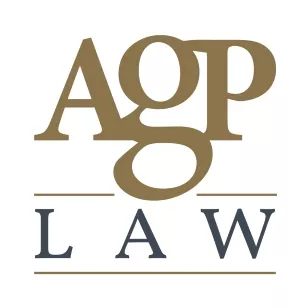- within Technology, Accounting and Audit and Strategy topic(s)
- with Finance and Tax Executives
The Department of Registrar of Companies and Intellectual Property, following the legal opinion from the Republic's Legal Service dated 13/06/2024 on the above matter, provides the following relevant guidance/instructions.
Cases where the beneficial owner has passed away:
Responses to specific questions:
1. Who is registered as the beneficial owner (BO) when there is no will and, therefore, no executor of the estate?
2. What happens in the case where there is a will? Can the executor of the estate be registered as the senior management officer until the process is completed?
3. In the event that an estate administrator has been appointed but the estate management process has not been completed, can the following be registered until the process is complete: i. The administrator of the estate as the senior management officer of the company, if they exercise control over the company by other means, or ii. The legal heir as the beneficial owner or as the senior management officer?
When a person passes away without a will, the Court authorizes one or more individuals as administrators of the deceased's estate, granting them administration documents upon their application, which is referred to as an application for administration without a will attached. Similarly, when a person passes away leaving a will, this will is validated (see Article 14 of the Management of Deceased Persons' Estates Law (Chapter 189)) following an application by the persons named as executors or other persons legally entitled to obtain a grant of probate or administration with the will attached.
Upon the issuance of administration documents or probate, as mentioned above, the administrator or executor becomes the personal representative of the deceased and is considered a trustee of the deceased's movable and immovable property. As such, they are the natural person who has "ultimate control" according to the definition of "beneficial owner" in Article 2 of Law 188(I)/2007. It should be noted that the situation where the ultimate ownership or control of the legal entity is held through a trust, owning more than 25% of the shares or voting rights or ownership rights, is different.
Therefore, when there is no will and an administrator has been appointed, or when there is a will and an executor has been appointed, they constitute the beneficial owners, as the natural persons who have ultimate control of the company, for as long as they hold this position concerning the company's assets (i.e., the shares).
The above is subject to the provisions of Article 27 of Chapter 189, which provides for the inheritance to pass directly to the heirs in special cases (even if no administration document has been granted), where the heirs of the deceased become the beneficial owners as the natural persons with the ultimate ownership (Note: In practice, the process of Article 27 of Chapter 189 is only applied when the value of the estate does not exceed £6,000).
4. Who is registered as the BO when no estate administrator has been appointed, and there are no heirs?
According to Article 47 of Chapter 195, "if no person related to the deceased up to the sixth degree of kinship is alive at the time of their death, they are considered to have died without heirs," and "subject to the portion of any surviving spouse, the legally unavailable and undisposed part of the estate becomes the property of the Republic."
However, in response to the question, the absence of an application for administration and the lack of appointment of a personal representative (and the non-transfer of the estate to the Republic) means that "a natural person with ultimate ownership or control of the legal entity" cannot be identified. Thus, the beneficial owner in this case is "the natural person who holds the position of the senior management officer" as defined in Article 2 of Law 188(I)/2007 unless Article 27 of Chapter 189 applies (see point 3 above).
5. Who is registered as the BO when no estate administrator has been appointed, there are no heirs, but the deceased left minor children and a spouse?
Without granting administration documents and appointing a personal representative when the deceased left heirs, namely a spouse and children, the beneficial owner is "the natural person who holds the position of the senior management officer" as defined in Article 2 of Law 188(I)/2007, given that no natural person can be identified as the beneficial owner under paragraph (a)(i) of the definition, unless Article 27 of Chapter 189 applies.
6. Who is registered as the BO in an entity when the sole officer (director, secretary) and beneficial owner has passed away, and there is no will or estate administrator?
In the event of the death of the sole shareholder and officer of a company, and where no administration documents have been issued, and no "natural person holds the position of the senior management officer" as defined by the provisions of Law 188(I)/2007, there is no natural person within the meaning of "beneficial owner" under Article 2 of Law 188(I)/2007, and it follows that the company ceases operations and is not functioning.
Note: In any case, any relevant provisions of the founding or statutory document of the company or the application of other laws should be considered depending on the specific circumstances.
The content of this article is intended to provide a general guide to the subject matter. Specialist advice should be sought about your specific circumstances.


